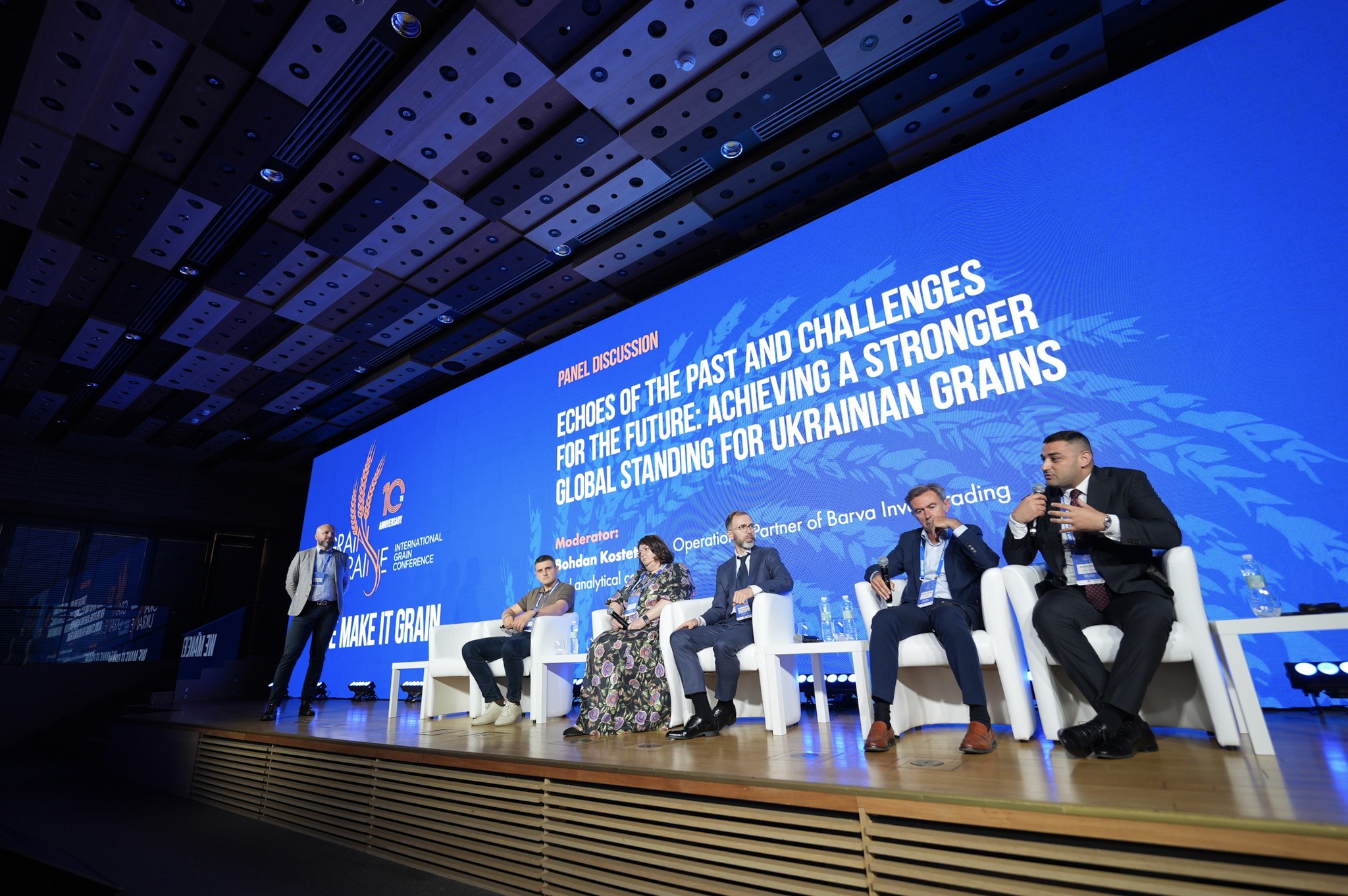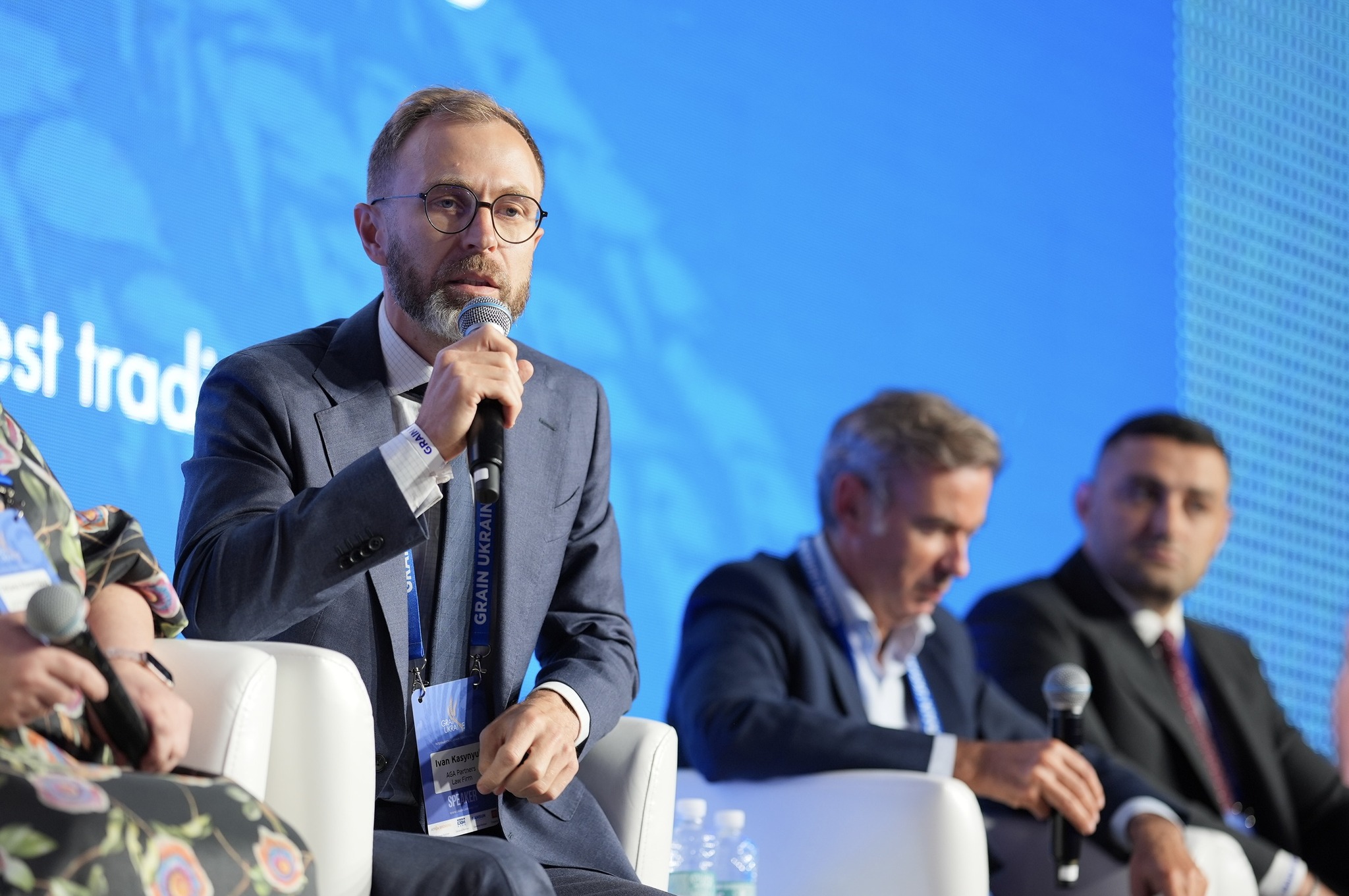The war in Ukraine, now in its fourth year, has changed the rules for exporting Ukrainian grain: there has been some deterioration in product quality, increased risks in contract fulfillment, rising prices, and the emergence of new players who previously had no experience in the agricultural sector. At the same time, foreign partners say they are impressed by the ability of Ukrainian farmers to operate amid military actions and continue exporting their products.
This and many other aspects were discussed during the panel discussion “Echoes of the Past and Challenges of the Future: The Path to Strengthening the Global Position of Ukrainian Grain,” which included the participation of:
- Bohdan Kostetsky, operating partner of the trade-analytical company Barva Invest (moderator);
- Ahmed Amin, founder and CEO of Sprint Trading;
- Ivan Kasynyuk, partner at the law firm AGA Partners;
- Manuel Alcaraz, general manager of Cereales y Harinas Garsan S.L. (CYH Garsan);
- Volodymyr Slavinsky, trade director of NIBULON;
- Tetyana Alaverdova, commercial director of UKRPROMINVEST-AGRO.

Here are the key points discussed by the participants:
“You sleep peacefully when there is a ‘paper contract.’”
Price fluctuations, as well as the quantity and quality of contracts, become the main causes of disputes. Traders look for mistakes in contracts to lawfully use them against the producer. That is why contracts must always be concluded. But it is important to work on them with specialists who have sufficient expertise and positive practical cases with such documents.
It is necessary to develop a risk management system regardless of company size. Every company has certain limits — how much product it can realistically supply. At the same time, you should not put all your eggs in one basket; risks should be distributed among different companies to avoid problems in the future.
One of the good things about Ukraine-Egypt trade relations is that no matter what happens, there will still be a strong flow between Ukraine and Egypt. This is facilitated by the favorable geographic location of the countries: delivery takes up to 2 weeks (compared to 3–6 weeks when transporting from/to Egypt from other parts of the world). At the same time, Ukrainian grain producers need to improve quality, which has somewhat declined during the war years. Pricing remains important since, for example, the Egyptian market is very price-sensitive and buys where it is cheaper.
Ukrainian agricultural producers constantly need to think about changes to improve and withstand competition — that is our reality.
Processing, which is widely discussed now, requires significant investments that cannot be recouped in Ukraine within three years, so new directions need to be sought.
For Ukraine to enter new markets or regain old ones lost over recent years due to the war, embassies need to organize “agro-attachés” who will promote Ukrainian grain on the global market. We must reduce the distance between buyer and seller and find our “unique selling point” to offer on the external market.





















